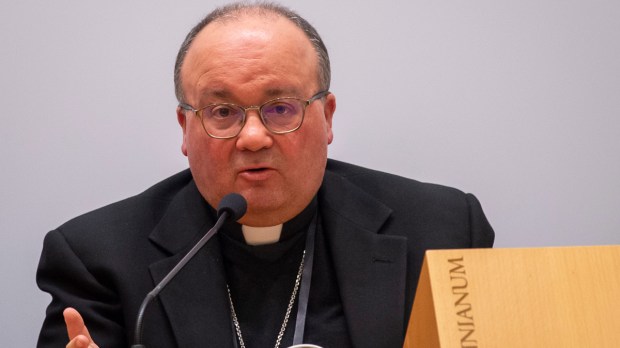The Mediterranean island nation of Malta is reforming its constitution, and a bishop in the mostly Catholic country is supporting the view that the governing document should maintain Catholicism’s special status.
Malta Archbishop Charles J. Scicluna told Television Malta (TVM) that the Constitution should continue to uphold Catholicism as the religion of Malta. He made the statement during the launch of his book on how the faith became part of the first Constitution, almost 100 years ago.
Scicluna just published the book Religion and the 1921 Malta Constitution, which documents the discussions culminating in Act I of 1922, or the Religion of Malta Act.
“The history of The Religion of Malta Declaration was marked by the healthy interaction between the need to guarantee religious freedom to everyone … and the strong wish of the Maltese to grant ‘special civil recognition’ to the Catholic Religion in the constitutional order of society,” said promotional material for the book. “Maltese society has quickly developed into a multi-ethnic society where different religions coexist. The Catholic Religion still provides the nation with its historical heritage and narrative, with its ethos and ritual. The balance needs to be struck between the need to be inclusive of other religious experiences in order to promote social cohesion and the need to safeguard the unique religious narrative that has given Malta and the Maltese their unique culture.”
During the book launch event, Archbishop Scicluna that in the current debate over reform of the constitution, that history should not be forgotten.
Before removing the constitutional recognition of Catholicism as the religion of Malta, “we could understand why we should keep it,” Scicluna said in an interview with the Times of Malta. “For the essence of being a Church, he continues, is not about recognition by the State; the Church does not need constitutional status to proclaim the Gospel and to be of service to people in need,” he said.
But the State must still ensure the necessary guarantees to freedom of action and self-management, the Times summarized. “That it is something that we could promote for all religions, not only for ourselves,” the archbishop said. Any decisions by our politicians to give away a century of constitutional history, would not create social peace “but probably create social tension.”
The constitution and religion in Malta between 1921 and 1974, by George Grima, explains that Malta had eight Constitutions between 1921 and 1974. “Of these, the most important, in so far as religious matters are concerned, are the Self Government (1921), the Independence (1964) and the Republic Constitution (1974),” according to a précis of the book on the website of the University of Malta. “What these three Constitutions have in common is that they all recognize the right to freedom of conscience and worship. … The 1921 Constitution contains only one section on religion which, in the first place, affirms everyone’s right to freedom of conscience and worship and, secondly, prohibits religious discrimination in any public career. While declaring the Roman Catholic religion as the religion of Maltaand guaranteeing freedom and independence to the Roman Catholic Church, the 1964 Constitution includes freedom of conscience and worship as well as equality of treatment, prohibiting religious (and other forms of) discrimination, among the fundamental human rights. The 1974 Constitution does substantially the same except that it practically abolishes the special guarantee which the Roman Catholic Church enjoyed under the previous Constitution.”
Scicluna said the Church respects whatever decision is made in the consultation process leading to a new Constitution.
Constitutional reform began under President Emeritus Marie Louise Coleiro Preca. Prime Minister Joseph Muscat had pledged to revise the Constitution. According to the Times of Malta, the Council of Europe’s Venice Commission opined that Malta’s Office of the Prime Minister had too much power when compared to other institutions. One idea being floated is that a term limit should be imposed on the role of Prime Minister and on Members of Parliament.

